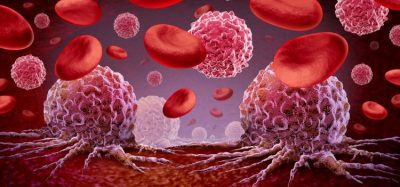Innovation passport designation awarded to Pfizer and Arvinas
Posted: 1 August 2023 | Catherine Eckford (European Pharmaceutical Review) | No comments yet
As the next stage of their co-development of vepdegestrant, the Medicines and Healthcare products Regulatory Agency (MHRA) has granted Pfizer and Arvinas its Innovation Passport to advance development of the oestrogen receptor (ER) degrader for ER+HER2- breast cancer.


Arvinas, Inc. and Pfizer Inc. have been awarded an Innovation Passport for vepdegestrant (ARV-471), an investigational PROTAC® ER degrader, as a treatment for oestrogen receptor (ER)+/ human epidermal growth factor receptor (HER)2- locally-advanced breast cancer or metastatic breast cancer.
The award was jointly granted by the UK Innovative Licensing and Access Pathway Steering Group, which consists of the All Wales Therapeutics and Toxicology Centre (AWTTC), the Medicines and Healthcare products Regulatory Agency (MHRA), the National Institute for Health and Care Excellence (NICE) and the Scottish Medicines Consortium (SMC).
Innovation Passport application is the first step in the Innovative Licensing and Access Pathway (ILAP) process. The ILAP aims to accelerate the time to market facilitating patient access to medicines in the UK.
This Innovation Passport designation “opens the door for Pfizer and Arvinas to discuss access considerations for potential future indications for vepdegestrant,” stated Dr Chris Boshoff, PhD, Chief Oncology Research and Development Officer and Executive Vice President at Pfizer.
Instigation of the ILAP process means the MHRA and its partner agencies will move forward with developing a roadmap for regulatory and development milestones. The MHRA introduced ILAP in early 2021.
Clinical data for vepdegestrant
Multiple Phase I, II and III studies with vepdegestrant are enrolling globally, including the VERITAC-2 Phase III 2L/3L clinical trial of vepdegestrant as a monotherapy for ER+/HER2- metastatic breast cancer. Enrolment is anticipated to complete in 2024. Use of vepdegestrant in ongoing and planned clinical trials will continue to monitor and evaluate safety and anti-tumour activity of the anti-cancer treatment.
In preclinical studies, the orally bioavailable PROTAC protein degrader demonstrated up to 97 percent ER degradation in tumour cells, induced robust tumour shrinkage when dosed as a single agent in multiple ER-driven xenograft models.
In July 2021, Arvinas announced a global collaboration with Pfizer for the co-development and co-commercialisation of vepdegestrant.
Related topics
Anti-Cancer Therapeutics, Big Pharma, Biopharmaceuticals, Drug Development, Industry Insight, Regulation & Legislation, Research & Development (R&D), Technology, Therapeutics
Related organisations
Medicines and Healthcare Products Regulatory Agency (MHRA), National Institute for Health and Care Excellence (NICE), Scottish Medicines Consortium (SMC), The All Wales Therapeutics and Toxicology Centre (AWTTC)









